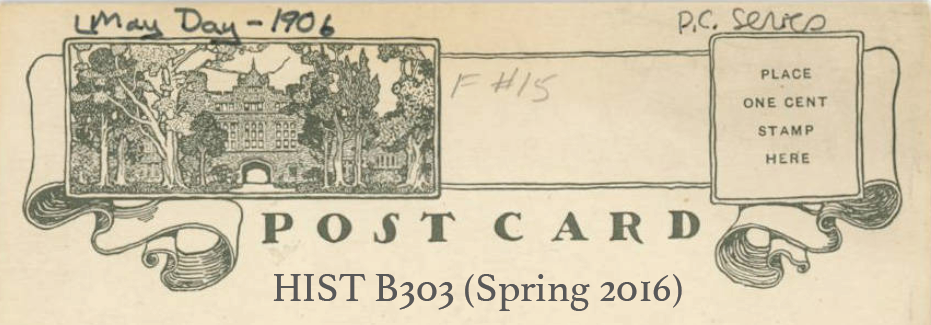I actually disagreed with Carter’s argument about the power of silences. She claims that silence, including the silences in the archive, can be a tool of resistance. Of course this is true in situations like that of slaves or soldiers who refuse to give crucial information, but in the case of history silence is deadly. It does matter if other people see things because they hold important meaning, even if one might want to keep them private while alive. For example, Emma Goldman’s very sexually charged letters to a variety of partners were left out of her autobiography because she had more political priorities, and these things were private, but in history these letters have revealed crucial dimensions of her life and politics. Silence can be good when you’re alive, but it is useless in death. People who donate personal papers realize this is true. It’s a foundational pillar of the archive.
I also really agreed with the analysis about saving community histories and chronicling our activism. I have been blogging for an organization in Philly in the Black Lives Matter movement for a while. I am thinking about how to save the blog in the future, now. This is also a huge issue because the internet is being taken over by corporations. We have to find ways to do things without using microsoft and others who might make our information inaccessible later.
